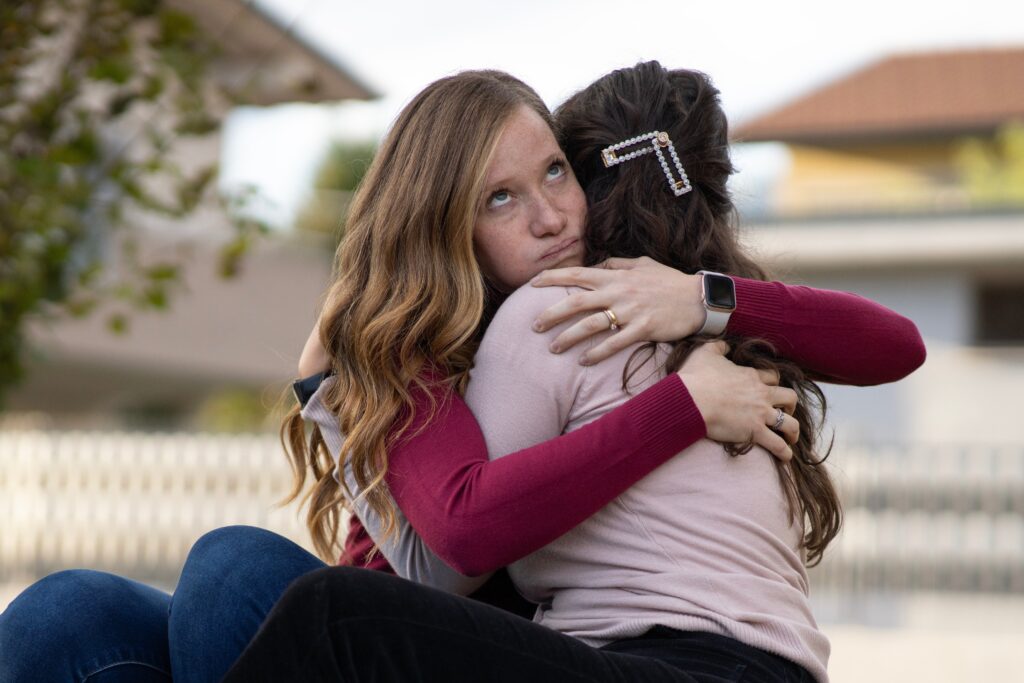Sharing too much might feel freeing, but these 11 harsh truths prove it’s costing you more than you realize.

In a world where people share every thought, meal, and struggle online, privacy has become a rare luxury. Oversharing might seem harmless, even therapeutic, but it can backfire in ways you never expected. What feels like an innocent conversation or a heartfelt social media post can quickly become fuel for gossip, judgment, or even manipulation.
Keeping parts of your life private isn’t about being secretive—it’s about protecting your peace. Not everyone who listens has good intentions, and not every personal detail needs to be public knowledge. The more you reveal, the more control you give away.
If you’ve ever regretted telling someone too much or felt drained by constant vulnerability, you’re not alone. These reasons will show you why keeping certain things to yourself is one of the smartest moves you can make.
1. Not everyone has your best interests at heart.

It’s easy to assume that people are genuinely interested in your stories, struggles, or dreams, but not everyone listening has good intentions. Some will take what you share and use it against you. Others might gossip, spread half-truths, or twist your words for their own entertainment.
Even people you trust can unintentionally reveal things you’d rather keep private, according to research in Psychology. The more details you share, the more you risk losing control over your own narrative. Once something is out there—whether in a conversation or on social media—you can’t take it back.
Being selective with what you reveal doesn’t mean you’re hiding anything. It means you understand that not every audience is worthy of your vulnerability. Keeping certain details to yourself ensures that your personal life stays exactly that—personal.
2. People judge more than they support.

Sharing struggles or personal experiences might seem like a way to connect with others, but often, it opens the door to judgment instead of understanding, as mentioned at New U Therapy Center. Many people won’t see your honesty as bravery—they’ll see it as weakness, drama, or an opportunity to critique your choices.
Even well-meaning friends and family can turn into unintentional critics. Instead of offering support, they may question your decisions, spread unsolicited advice, or compare your life to theirs. The more you reveal, the more opinions you invite, and not all of them will be kind.
Keeping certain aspects of your life private doesn’t mean you’re shutting people out. It means you’re protecting your peace from unnecessary criticism. Some things are better worked through in silence, away from the noise of others’ judgments.
3. Oversharing makes you an easy target for manipulation.

The more someone knows about your insecurities, struggles, and desires, the easier it is for them to use that information against you, as reported by Stephanie Lyn on her website. Manipulative people thrive on details—they listen closely, not to help, but to find ways to control, guilt-trip, or take advantage of you.
Telling the wrong person too much about your financial struggles, personal relationships, or self-doubts can put you in a vulnerable position. They might exploit your fears, play on your emotions, or twist your words to suit their own agenda.
Keeping parts of your life private is a way to protect yourself. It doesn’t mean you don’t trust anyone—it means you recognize that some knowledge is power, and you’d rather keep that power in your own hands instead of giving it away.
4. Once something is shared, you can’t take it back.

In the heat of the moment, it’s easy to vent or share a deeply personal story, thinking it will stay between you and the person listening. But the reality is, once you put something out there, you lose control over where it goes next, reminds Jonathan Shaw writing for Harvard Magazine.
People talk. Screenshots get saved. Social media posts live forever. Even casual conversations can resurface in unexpected ways, leaving you wishing you had kept certain things to yourself. The regret of oversharing can hit hard when you realize a moment of openness has turned into an ongoing problem.
Before sharing something personal, ask yourself: would I be okay with this being repeated or resurfacing later? If the answer is no, keeping it private is the smarter choice.
5. Privacy gives you a sense of control over your life.

The less people know about you, the less they can interfere, speculate, or pass judgment on your decisions. Privacy isn’t about secrecy—it’s about maintaining control over what parts of your life are open for discussion and what parts belong to you alone.
When you overshare, you invite opinions, expectations, and sometimes even unwanted involvement from others. Suddenly, your choices become topics of debate, and your personal struggles turn into group discussions. Keeping certain things to yourself allows you to navigate life without unnecessary outside pressure.
By setting boundaries around what you share, you reclaim your autonomy. You get to decide what’s worth discussing and what deserves to remain sacred, untainted by outside influence.
6. People lose respect for those who reveal too much.

Oversharing can make you appear unfiltered and relatable, but it can also make others see you as someone who lacks discretion. When people notice that you constantly spill every detail of your life, they may start to view you as reckless, dramatic, or even attention-seeking.
Those who respect their own privacy often respect it in others. If you have a habit of telling everyone everything, people may hesitate to share their own personal matters with you, fearing that you lack the ability to keep things confidential.
A little mystery goes a long way. Keeping certain things private commands respect and creates an air of self-assurance. People are naturally drawn to those who know when to speak and when to remain reserved.
7. Constantly explaining yourself is exhausting.

When you share too much, you feel obligated to keep people updated on every change, struggle, or decision in your life. Suddenly, your personal matters become open-ended conversations, and people expect explanations, follow-ups, or justifications for every choice you make.
Oversharing creates a cycle where you feel responsible for keeping others informed, even when you’d rather move on. It can make you feel trapped, like your life isn’t fully yours anymore because too many people have opinions on what you should be doing.
By keeping certain details private, you free yourself from the exhausting need to explain, defend, or rehash personal situations. You regain the ability to make decisions without feeling like you owe anyone an explanation.
8. Not everyone deserves to know your struggles.

There’s power in being selective about who gets access to your vulnerabilities. Some people genuinely care, but others only listen out of curiosity, boredom, or the desire to compare their lives to yours.
Sharing personal hardships with the wrong person can lead to gossip, unsolicited advice, or empty platitudes that make you feel worse instead of better. Not everyone knows how to handle deep conversations with care, and not everyone has your best interests at heart.
Choosing to share your struggles with a select, trusted few rather than with everyone ensures that you receive genuine support instead of surface-level responses or judgment. Some battles are best fought privately, with only the right people standing beside you.
9. Social media isn’t your therapist, and oversharing there can backfire.

Venting online or sharing personal struggles on social media might feel like a way to connect, but it often does more harm than good. Once you post something, you have no control over how it’s perceived, shared, or remembered. People who barely know you suddenly have insight into your private life, and not everyone will be kind.
Oversharing online can also make you an easy target for criticism, unsolicited advice, or even passive-aggressive responses. People may screenshot and discuss your posts long after you’ve moved on. Employers, acquaintances, and even strangers can form opinions about you based on moments of vulnerability.
Instead of using social media as a diary, consider whether your words will still feel right a year from now. Some thoughts are better kept in a journal than broadcasted for public consumption.
10. The more you reveal, the less people appreciate your presence.

When you share everything with everyone, the mystery disappears. People become less interested in truly getting to know you because they already feel like they have all the details. Constantly putting your life on display can make you seem predictable, leaving little room for curiosity or deeper connections.
There’s something powerful about being selective with your words. People are naturally drawn to those who don’t give everything away too easily. A little bit of mystery keeps relationships fresh, allowing room for meaningful conversations instead of constant oversharing.
By keeping certain details private, you create an aura of self-respect and confidence. When you choose what to share and when, your words carry more weight. People pay closer attention, and your presence feels more valued instead of something they’ve already scrolled past or heard a hundred times before.
11. Some things are meant to be processed, not broadcasted.

Not every thought, struggle, or frustration needs an audience. Some emotions are best understood in quiet reflection rather than being dissected by others. When you overshare in the moment, especially when emotions are high, you might say things you later regret or reveal personal details that shouldn’t have left your inner circle.
Sharing every struggle immediately can also make it harder to truly process your feelings. Instead of working through them privately, you start looking for external validation, making it difficult to find clarity within yourself. The need for outside opinions can cloud your judgment and delay genuine healing.
Instead of rushing to share everything, allow yourself time to sit with your thoughts. The perspective gained in private reflection is often far more valuable than any feedback you’d receive from the outside world.
12. Peace comes from knowing your life is yours, not for public display.

The greatest benefit of keeping your life private is the sense of peace that comes with it. When you stop oversharing, you gain the freedom to live without unnecessary outside influence, judgment, or interference. Your choices become truly yours, untainted by the expectations or opinions of others.
Privacy allows you to focus on what truly matters—your growth, your happiness, and your relationships with those who genuinely care. You no longer feel the pressure to explain, justify, or seek validation from the wrong places. Life becomes simpler when you don’t feel the need to narrate every detail.
There’s power in knowing that not everyone has access to your thoughts, struggles, or dreams. When you protect your privacy, you protect your peace—and that’s worth more than any momentary connection oversharing might bring.
